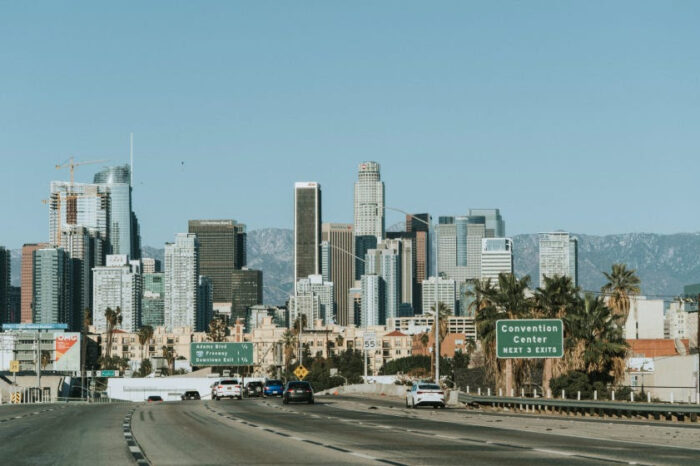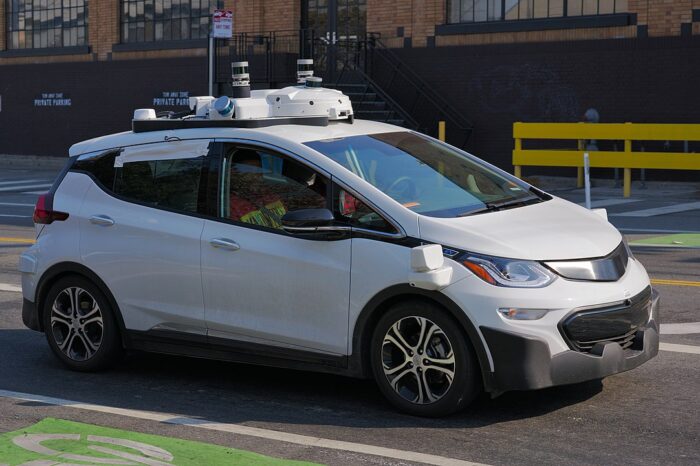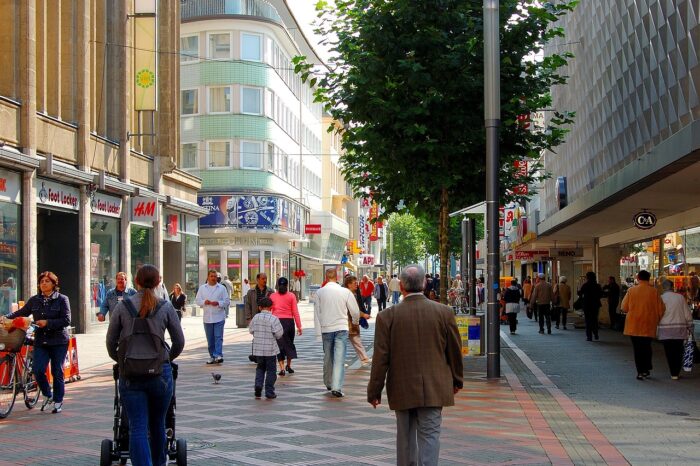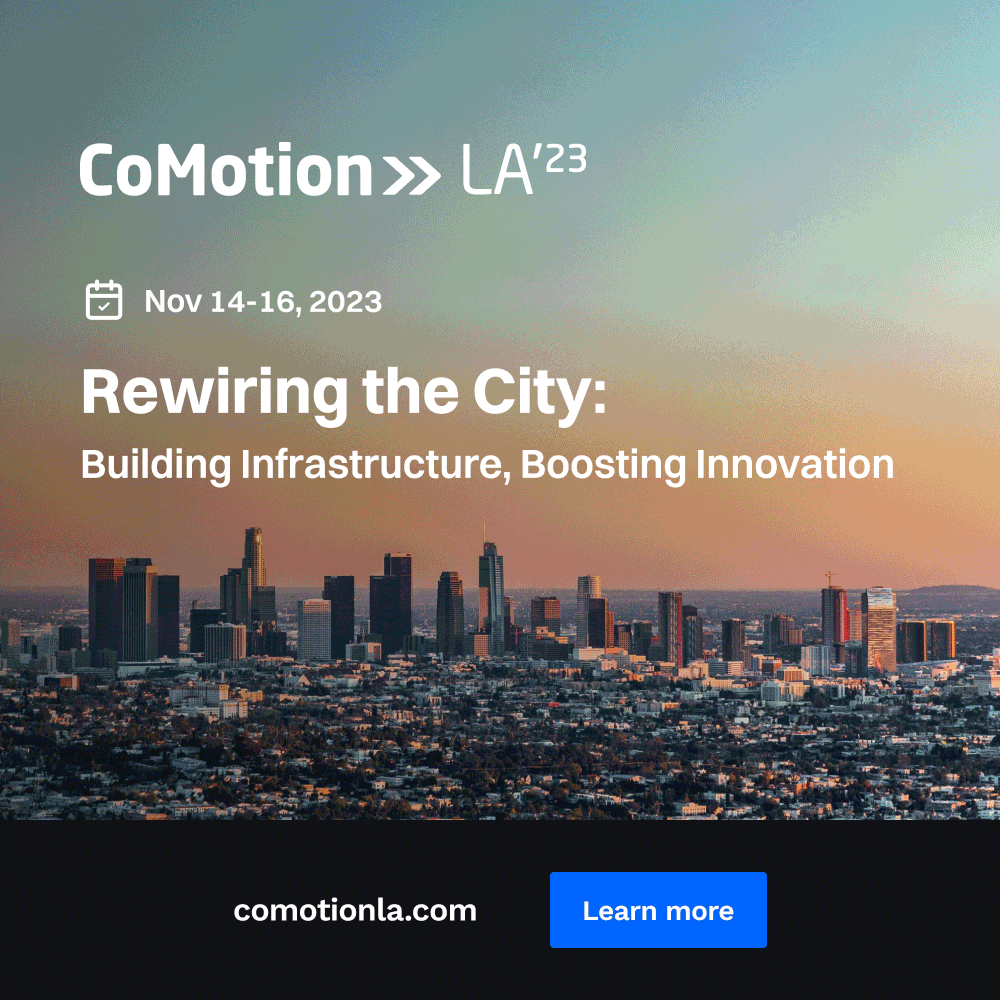It’s a fitting finale to what some are calling America’s “Summer of Strikes”: workers at all three Detroit automakers have walked off the job. The unprecedented work stoppage is the result of aggressive new leadership at the United Auto Workers as well as deep anxieties among UAW members about the future of their jobs and union at the dawn of the EV era.
In other news involving tech and politics, the E.U. threatens tariffs against Chinese EVs, the California Legislature passes a bill banning fully driverless trucks, San Francisco wants a do-over on robotaxis, Japan puts in place dedicated lanes for AVs, and New York City proposes new e-bike regs that have united the bike industry and cycling advocates in outrage.
Finally, our own John Rossant teams up with MIT’s Carlo Ratti to argue that more intelligent regulatory frameworks are needed so that robotaxis can scale in a safe and responsible way – and help make cities better, not worse.
![]()
An unprecedented strike: For the first time in history, the United Auto Workers has called a strike targeting all three Detroit automakers: GM, Ford, and Stellantis, the parent company of Chrysler. For now, the strike only involves employees at three assembly plants: a Ford plant in Wayne, Mich., a Stellantis plant in Toledo, Ohio, and a GM plant in Wentzville, Mo. However, the strike could very well extend to other facilities in the coming days or weeks.
Citing record profits at all three companies and the 40% increase in pay for the companies’ CEOs over the past four years, the union has demanded a 40% wage hike over the next four years; the companies have offered about half that.
Overhanging the negotiations is deep anxiety among employees about the transition to EVs, which don’t require as many workers to assemble. The union also sees this contract as an opportunity to prove its value to workers at Tesla and other non-union automakers that have been able to resist UAW organizing efforts in the past. If the Big Three agree to the union’s demands, its employees would boast a compensation roughly double that of a Tesla employee. It could prove to be a pivotal moment for American unions, which after decades of decline appear to have experienced a resurgence.
A prolonged work stoppage could also have major ramifications for the U.S. economy, causing a vehicle shortage that will lead to increased prices, just as the country had begun to get inflation under control. Coming into a presidential election year, President Joe Biden wants to show support for the striking workers and the broader labor movement, but obviously doesn’t want damage to the economy when he’s running for reelection.
EU threatens tariffs over Chinese subsidies: EU officials are launching an investigation into Chinese EV brands to determine whether they received subsidies from the Chinese government that would give them an advantage over European competitors. Subsidies could be grounds for slapping tariffs on Chinese vehicles. The prospect of a flood of cheap(er) Chinese EVs has rattled established European OEMs.
Unsurprisingly, China hasn’t received the news of potential tariffs warmly, calling the EU investigation a “naked protectionist act” that will harm trade relations.
…while doling out its own subsidies: Verkor, a battery manufacturer backed by French auto giant Renault is poised to get another $2.1 billion to expedite the construction of a massive plant in Dunkirk, much of which comes from the public sector: €600 million in loans from the European Union and counts €650 million in subsidies from the French government. The latter still requires final approval from the European Commission.
What will Gavin do? After being overwhelmingly approved by both chambers of the California Legislature, a bill banning fully autonomous trucks lands on Gov. Gavin Newsom’s desk. Those close to Newsom have argued that the law would put the state at a disadvantage in terms of tech innovation, suggesting the governor will veto the bill. For the veto to hold, however, he will have to convince some legislators to change their position.
Tapless transit: The city of Seoul is phasing in turnstiles at metro stations that don’t require a ticket or even a tap. Riders who have downloaded the Mobile T-Money app and activated Bluetooth simply walk through; an antenna above the ticket gate receives the information from their phone.
SF wants a robotaxi do over: San Francisco has formally requested that state regulators reconsider an August decision to expand robotaxi permits for Cruise and Waymo. The decision faced opposition from city agencies and residents concerned about safety risks and the potential for robotaxis to block traffic. San Francisco City Attorney David Chiu has urged the California Public Utilities Commission to review the decision, accusing the agency of ignoring public safety hazards and requesting new reporting requirements for AV companies.
Delivery dilemma in the Big Apple: New rules proposed for cargo e-bikes by the New York Transportation Department encounter strong opposition from the bike industry, cycling advocates and delivery workers. Of particular concern is a proposed 10-foot cap on bike-and-trailer combos, which would effectively ban 95% of the current cargo bike fleets operating in the city. Some industry leaders called for a 20-foot limit instead.
Ladies first: Lyft is now allowing women drivers to set a preference for picking up women. The company hopes the feature –– which does not guarantee only female customers –– will prompt more women to work for the app. Currently women account for less than a quarter of drivers.
Cruise unveils wheelchair-accessible robotaxi: The GM-backed robotaxi operator reveals a version of its Origin vehicle that includes a retractable ramp and increased interior space to accommodate passengers in wheelchairs. It says it could begin offering the service to those with disabilities as soon as next year.
Japan tries out dedicated AV lanes: The Japanese government is creating designated road lanes for autonomous vehicles in Hitachi, a mid-sized city north of Tokyo. The government envisions it as the first step towards introducing a similar scheme nationally. It appears that the lanes are oriented less towards private AVs than autonomous shuttles and buses.
![]()
Robotaxis won’t save us: In a column for the San Francisco Examiner, CoMotion founder John Rossant and Carlo Ratti, director of the MIT Senseable City Lab, caution against putting all of our figurative mobility eggs in the Silicon Valley basket. They point to Uber and Lyft, which initially promised to reduce congestion and car dependence but have likely resulted in the opposite. Governments should pair AV experimentation with sensible regulations, such as congestion pricing, and recommit to good old fashioned technology like buses, trains, sidewalks and bike lanes. Singapore is showing the way.
Hipsters vs highways: A major road project that will demolish a large swathe of homes, businesses and green space in a vibrant, artsy neighborhood in East Berlin has stoked opposition in and outside of the neighborhood. Critics say the project, which has been planned for decades, is out of touch with the current reality, most notably a severe housing crisis locally and a climate crisis globally.
America’s halting efforts at high-speed rail: There are more than 35,000 miles of high-speed rail tracks around the world, but in the U.S. only certain segments (totaling 50 miles) of Amtrak’s Acela route between Washington D.C. and Boston qualify as high-speed. Here is a look at four ongoing projects in California, Texas and Florida that aim to change the game.
All aboard the Fashion Express: Transport for London has altered all of the signage at the Bond Street Station in honor of London Fashion Week (Sept. 15-19). Passengers will instead be greeted by signs for Burberry Street Station. Cute, but also perhaps infuriating for visitors who are already struggling to navigate a massive new transit system.
Enjoy the Week in Review? Get it delivered directly to your inbox by signing up for the CoMotion NEWS newsletter.





